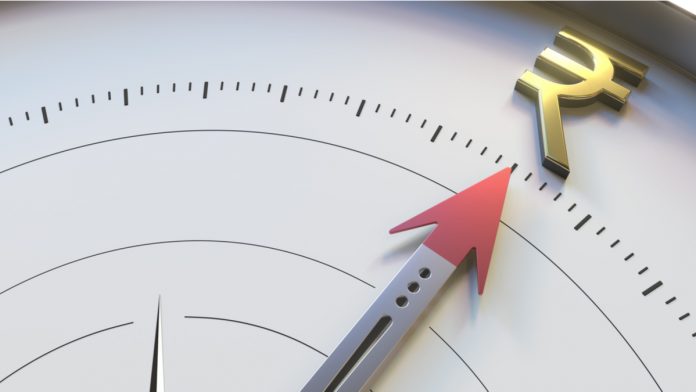GBP/INR is surging on Friday, though it’s unlikely that it will end the week in the green. Currently, the pair is trading at 88.651, up 3.23% as of 7:00 AM UTC. Before the session started, the price fell over 5.30% since Monday.
The British pound has recovered some of the previous losses as investors realized it had been wildly oversold. Yesterday, sterling tumbled against the US dollar to the lowest level since 1980. Today, some non-USD currencies are bouncing back on hopes that the stimulus measures will help the global economy deal with the upcoming recession.
Fitch Cuts India’s GDP Growth Forecast
The rupee continues to be under pressure as the rating agencies cut India’s growth forecast. After Moody’s and S&P 500 came with their predictions, Fitch Ratings also downgraded India’s economic outlook on Friday, cutting the estimates for the financial year 2020-21 to 5.1% from earlier projections at 5.6%. Fitch warned that the coronavirus outbreak would affect businesses investment and exports.
For the financial year 2021-22, the rating agency expects India’s GDP growth to be at 6.4%, down from previous estimates at 6.5%. Fitch said in its latest report:
“The outbreak of the virus is hitting sentiment, while local governments have rolled out measures to contain the spread of the virus, such as closing schools, cinemas and theatres. […] While India’s linkages with China (e.g. trade and tourism) are modest, manufacturers in India are heavily reliant on key Chinese intermediate inputs – especially of electronics and machinery and equipment.”
Besides the external factors, India is struggling with difficulties at home. In fact, the first signs of an economic slowdown were caused by domestic factors way before the outbreak started in China, and the recent Yes Bank failure is making matters worse. Fitch said that the overall financial system remained burdened with weak balance sheets, which would limit growth.
Separately, SBI Research released its Ecowrap report, which said that the COVID-19 pandemic would hit many key sectors, including trade, transport, hotels, and communication. The outbreak will push the country’s fiscal deficit to 3.88% of GDP this year.
Elsewhere, the Bank of England cut its interest rate from 0.25% to 0.1%, which is a record low. Also, the central bank pledged to buy bonds worth 200 billion pounds in an effort to stimulate the economy.





